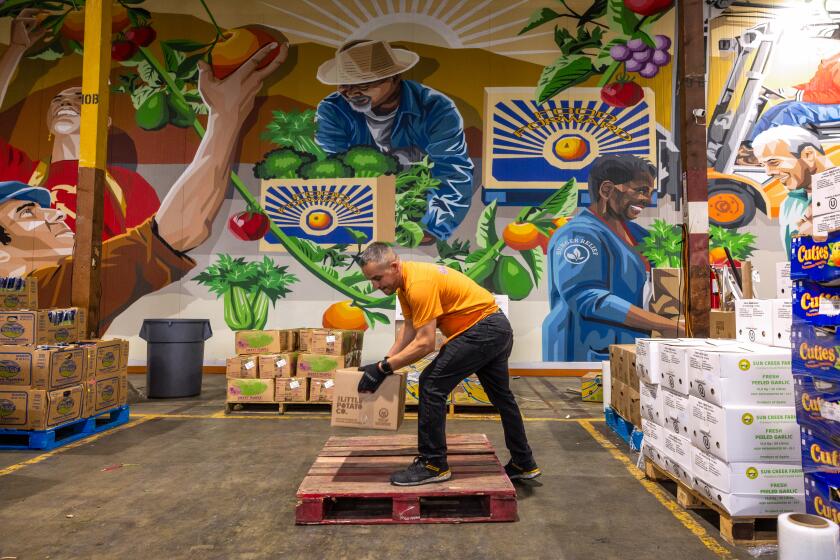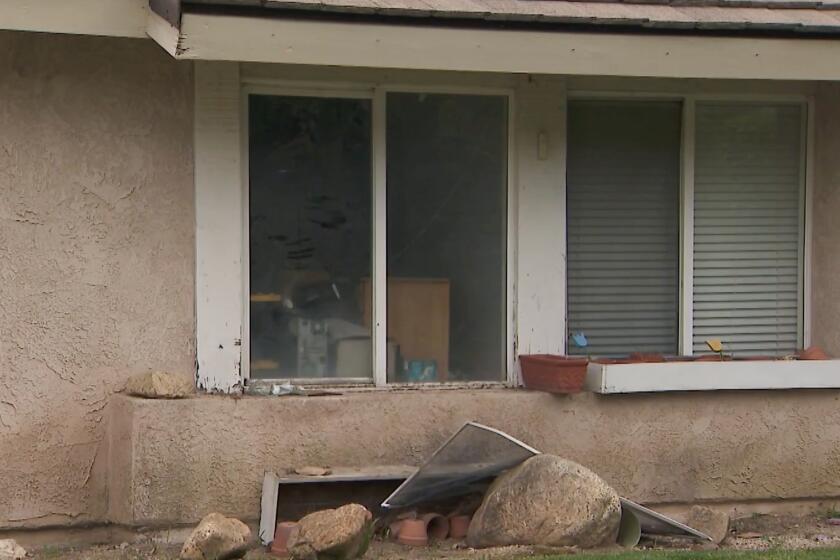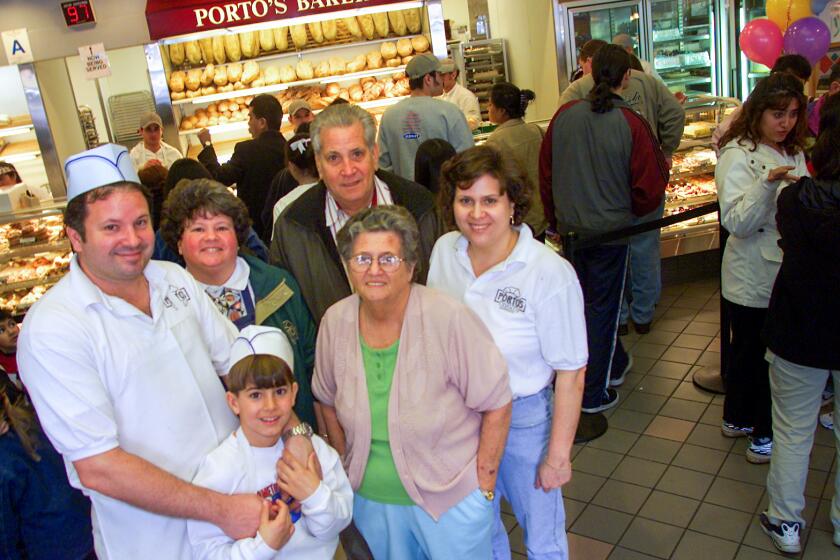California Offers Grant to Develop Plan : ‘Farm Girl’ Hopes to Market Lambs in Japan
Calling herself “a little garden-variety farm girl who believes in my product,” Anne Rominger is trying to increase exports to Japan in a small way.
Her specialty is baby lamb meat, considered a delicacy by French chefs and soon to be considered a delicacy in Japan if her efforts succeed.
Rominger, 46, recently was awarded $20,000 in grants from California’s new Export Trade Assistance program to try to develop a market for her baby lambs in Japan.
Representatives of large companies often express frustration at the complexities of trying to wend their way through the Japanese system, but Rominger is negotiating with potential Japanese customers directly.
“I just don’t know any better,” she said in an interview. “I don’t have enough sense to know it can’t be done.”
Actually, she learned that it can be done from Roger Bacigaluppi, head of the California Almond Growers Exchange. Rominger also has an almond orchard and heard Bacigaluppi describe how a market for Blue Diamond almonds was developed in Japan.
“The Japanese look for a quality product, and they don’t mind paying for it,” she said. “Their per-capita income is greater than ours, and they eat small portions.”
All of that fit perfectly with her baby lambs, which are sent to market at the tender age of 5 months.
“The lamb has to be by its mother’s side and has to be fed only native grasses, no artificial feeds--even alfalfa,” Rominger explained. “I don’t use medication, and they can’t be confined, so they develop nice and tender.”
French Chefs Particular
Since she started the business 15 years ago, Rominger has sold most of her little lambs to French restaurants, mainly on the West Coast.
“Just the elite restaurants because this is just the very best lamb,” she said. “I don’t pretend to know the difference that well, but French chefs certainly do.”
Her domestic business has grown big enough that she can’t supply all of her customers with the 1,000-sheep herd she has on a ranch near Woodland, 50 miles northeast of San Francisco. Consequently, she buys baby lambs “that meet my requirements” from Basque shepherds in the San Joaquin Valley, Idaho and Utah.
Her own lambs are commercial white-faced ewes crossed with either Suffolk or Hampshire rams.
Her background is not typical of a one-woman farming entrepreneur. She was born in San Francisco, was sent to finishing school in Switzerland and was a French major at the University of California, Berkeley.
But she took to farming and loves it because “I do not fit well in a sophisticated environment.”
At 5 feet 1, she feels “a tremendous feeling of accomplishment” at being able to move a bale of hay. And she says her hands are small enough to slip into a ewe’s birth canal and assist during labor.
Rominger has been negotiating with several Japanese companies for her California baby lambs and already has a few orders. She figures it will take at least three years before she will know whether the effort is a success.
So far as she knows, no one else is selling baby lambs in Japan.
“From responses of the Japanese, it seems to be a brand new product for them,” she said.
Rominger realizes that if her venture catches on, bigger companies may try to crowd into the baby lamb market. She is counting on loyalty with her developing Japanese contacts to keep her share of the business brisk.
“Maybe everything will blow up, but I have to try,” she said.
More to Read
Eat your way across L.A.
Get our weekly Tasting Notes newsletter for reviews, news and more.
You may occasionally receive promotional content from the Los Angeles Times.






